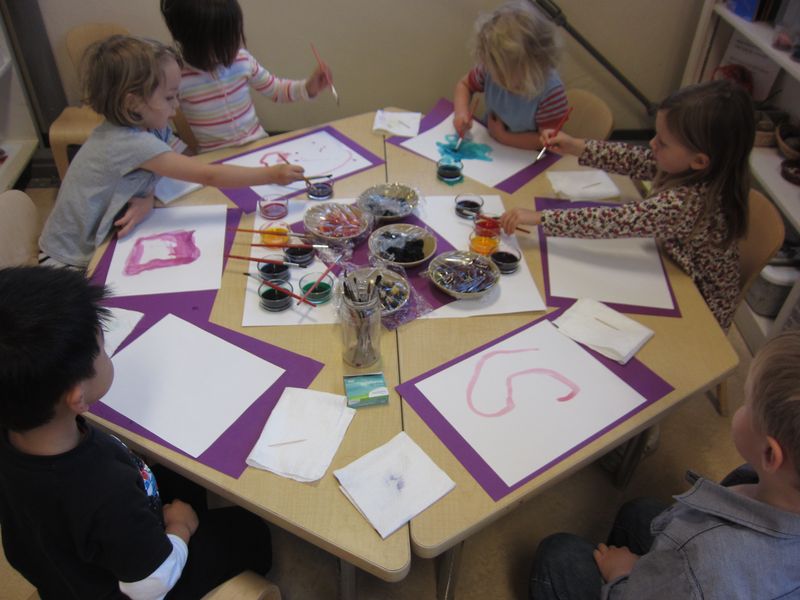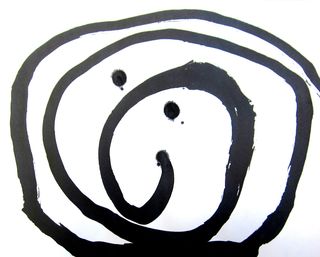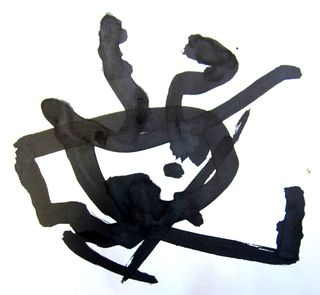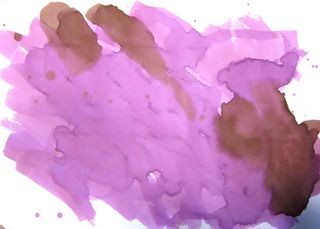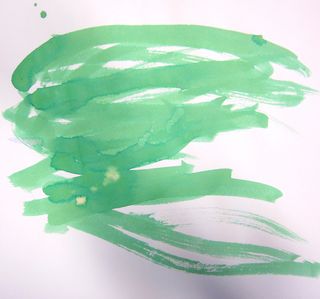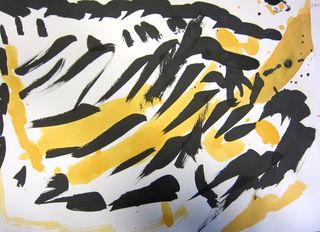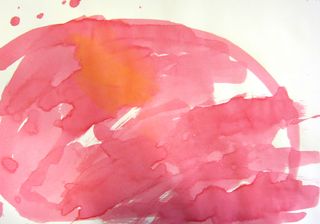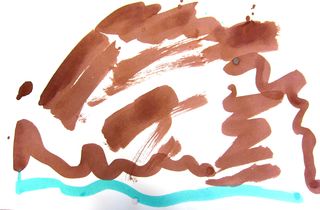What does taste look like?
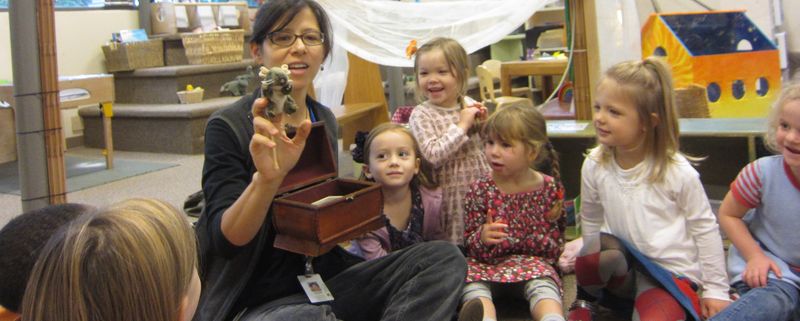
"At the center of our work, the atelier (studio) is at once the physical hub and the conceptual space that is catalyst and container for our meaning making. It is a dance of meaning that is made in relation to others and to experience. There is no fixed outcome. The outcome, we hope will be beyond our wildest dreams."
Louise Cadwell, Lori Geismar Ryan, and Charles Schwall, In the Spirit of the Studio
One morning in the preschool classroom, a squeaky voice called from the treasure box up on the shelf above our meeting circle…
it was little mouse!! Little mouse was so excited to try the berries and vegetables we brought back from the farmer's market–he decided to take a few nibbles. When he took his first bite, the taste exploded in his mouth! It was so wonderful and surprising that he hurried over to the studio to try to capture a picture of what the taste looked like.
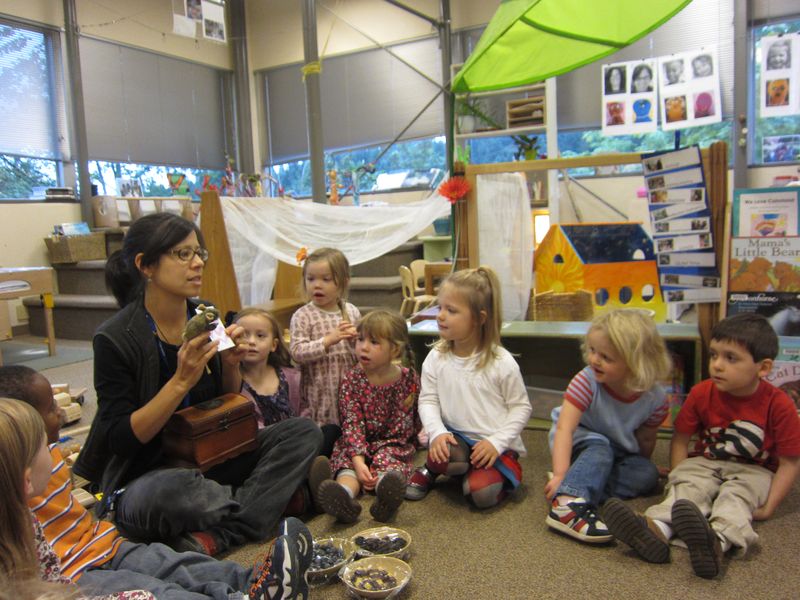
Here is little mouse's painting after tasting a purple carrot. Little mouse also showed them his paintings after tasting blueberries and blackberries. The blackberries spread through his body like a big smile.
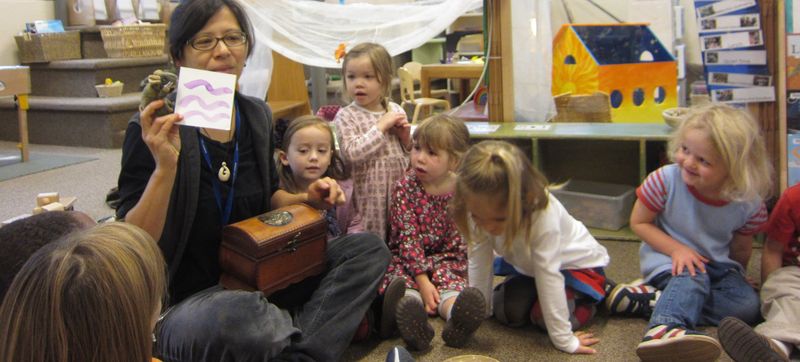
After showing his paintings to the children, he asked them if they thought their paintings would look like his, or look different? He asked if the children if he could sit in the studio to find out what the tastes looked like when the children tried to paint them.
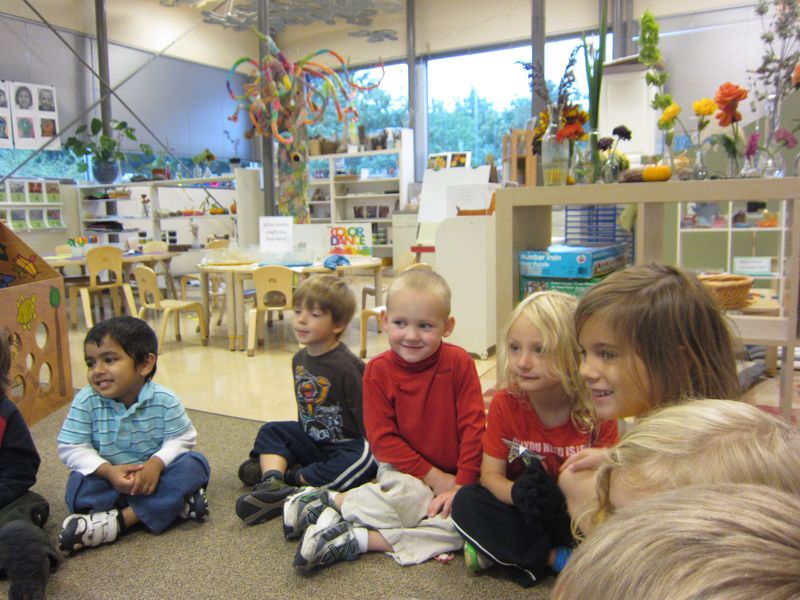
This is what happened next…
When SM tasted a blackberry, this is the taste she captured in paint: 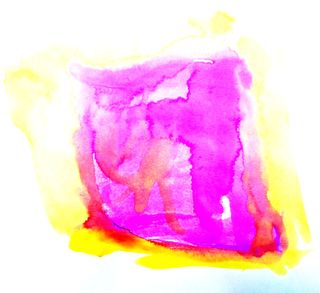
But when RM tasted a blackberry, she said, "I need black!" This is what she captured:
HF also asked for black, but the shape he captured after tasting a blackberry was different:
SS thought that the grape was a pinkish brown taste, he spread the colors out like this to capture the taste:
For OC, grape was a green taste, and this is how he captured it: 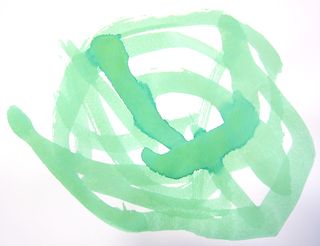
MM said he needed green too, after tasting a grape, but his lines went this way:
The teachers were surprised to see how intentional and confident the children were in their choices of color, and the thoughtful marks they were making, given the high challenge of painting something as abstract as "taste". As the children worked, they never even considered that this was something they couldn't do.
MG's clear choice of colors and difference in how he applied them is just one example of how the children approached this work with such confidence and intention.
Blackberry
Strawberry
"Blueberry is a brownish bluish color, that's why I put the blue at the bottom." MG
Teacher Reflection:
In a culture of playful inquiry, when children are invited to enter into relationships with ideas and materials to express their thinking, children and teachers are met with the joyful surprise of opening new doors. There is much they are able to learn about themselves and each other in the process. Some children found themselves tasting foods they were uncertain about or had never tasted before and exclaimed, "I didn't know I liked blackberries!" Or "This was my first time to taste a blueberry!" The surprise the teachers experienced in seeing how openly the children approached this work reminded us to continue to look for ways to engage the children's imagination, senses, and thinking in playful and open ended ways.

